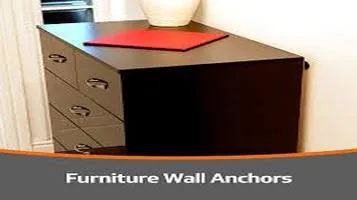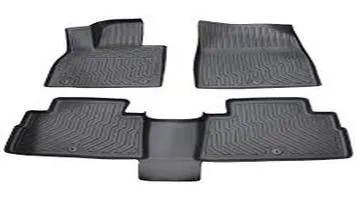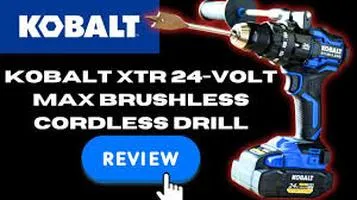Wall Anchors: A Comprehensive Review
Wall anchors are essential hardware components used to secure objects to walls, especially when direct attachment to a stud isn't possible. Typically made from plastic, metal, or other durable materials, wall anchors expand when a screw is inserted, providing a secure grip in drywall, plaster, or masonry. They prevent screws from loosening or pulling out, ensuring stability for mounted items. Wall anchors are versatile and come in various types, including plastic expansion anchors, toggle bolts, and molly bolts, each designed for specific weight capacities and wall materials. Ideal for hanging shelves, picture frames, or heavy mirrors, wall anchors help distribute weight evenly and prevent wall damage, making them indispensable in both residential and commercial settings.

Wall anchors are an indispensable tool for anyone looking to hang items securely on walls. Whether you're a professional contractor, a dedicated DIY enthusiast, or just someone needing to hang a picture frame, wall anchors can make the difference between a securely mounted item and a disaster waiting to happen. This review aims to explore the various types of wall anchors available, their applications, and overall effectiveness.
Types of Wall Anchors
1. Plastic Expansion Anchors: These are the most common type of wall anchors and are generally used for lightweight items. They work by expanding against the drywall when a screw is driven into them. However, they are not suitable for heavy loads and can sometimes fail if not installed correctly.
2. Threaded Drywall Anchors: Also known as self-drilling anchors, these are designed for medium-weight items. They can be screwed directly into drywall without pre-drilling, making them user-friendly. Their self-drilling feature ensures a snug fit, which enhances their holding power.
3. Molly Bolts: These anchors are designed for heavier items and can be used in drywall, plaster, and other wall materials. They consist of a metal casing that expands behind the wall when the screw is tightened, providing a strong and secure hold. Molly bolts are versatile and highly reliable.
4. Toggle Bolts: The heavyweights of wall anchors, toggle bolts are used for very heavy items. They have a spring-loaded mechanism that opens behind the wall, distributing the weight over a large area. While they require a larger hole and more installation effort, their holding power is unrivaled.
5. Concrete Anchors: These are specialized anchors designed for use in masonry or concrete walls. They are usually made of metal and can support very heavy loads. Concrete anchors are essential for industrial applications and heavy-duty installations.
Applications
Wall anchors are used in a variety of settings, from residential to commercial and industrial applications. Here are some common uses:
- Hanging Picture Frames and Mirrors: For lightweight items like picture frames, plastic expansion anchors are usually sufficient. For heavier mirrors, molly bolts or toggle bolts provide the necessary support.
- Mounting Shelves and Cabinets: Threaded drywall anchors or molly bolts are typically used for mounting shelves. For kitchen cabinets, which bear considerable weight, toggle bolts or even concrete anchors (if mounting onto a masonry wall) are recommended.
- Installing TV Mounts: Given the weight and importance of securely mounting a TV, toggle bolts are often the go-to choice. They provide the necessary strength to keep the TV securely in place.
- Securing Fixtures in Bathrooms and Kitchens: For items like towel racks, toilet paper holders, and kitchen racks, threaded drywall anchors or molly bolts are usually sufficient.
Installation and Effectiveness
The effectiveness of wall anchors largely depends on proper installation. Each type of anchor has its own installation method, and following the manufacturer's instructions is crucial for optimal performance.
- Plastic Expansion Anchors: These are relatively easy to install. Simply drill a hole, insert the anchor, and drive in the screw. However, they can sometimes spin in the hole, failing to provide a secure hold.
- Threaded Drywall Anchors: These are user-friendly and usually require just a screwdriver for installation. Their self-drilling feature ensures a tight fit, making them more reliable than plastic expansion anchors.
- Molly Bolts: Installation involves drilling a hole, inserting the bolt, and tightening the screw to expand the casing behind the wall. This can be a bit more labor-intensive, but the result is a very secure hold.
- Toggle Bolts: These require drilling a larger hole to accommodate the toggle mechanism. Once inserted, the toggle opens behind the wall, providing a very strong hold. However, they can be challenging to remove if needed.
- Concrete Anchors: Installation involves drilling into masonry, which can be challenging without the right tools. However, once installed, they offer exceptional holding power.
Pros and Cons
Pros:
- Versatility: A wide range of wall anchors are available for different applications and wall materials.
- Strength: When installed correctly, wall anchors can support significant weight.
- Ease of Use: Many wall anchors, especially threaded drywall anchors, are designed for easy installation.
Cons:
- Installation Complexity: Some anchors, like toggle bolts and concrete anchors, require precise installation and specialized tools.
- Potential for Failure: Improper installation or choosing the wrong type of anchor can lead to failure, resulting in damage to walls and mounted items.
- Cost: Higher-quality anchors, especially those designed for heavy-duty use, can be more expensive.
Conclusion
Wall anchors are an essential tool for securely mounting items on walls. With a variety of types available, there's a wall anchor for nearly every application and wall material. However, the key to their effectiveness lies in choosing the right type of anchor for the job and ensuring proper installation. Despite some potential drawbacks, such as installation complexity and the risk of failure if not used correctly, wall anchors offer a versatile and reliable solution for a wide range of mounting needs. Whether you're hanging a picture frame or installing a heavy-duty shelf, wall anchors provide the peace of mind that your items will stay securely in place.






